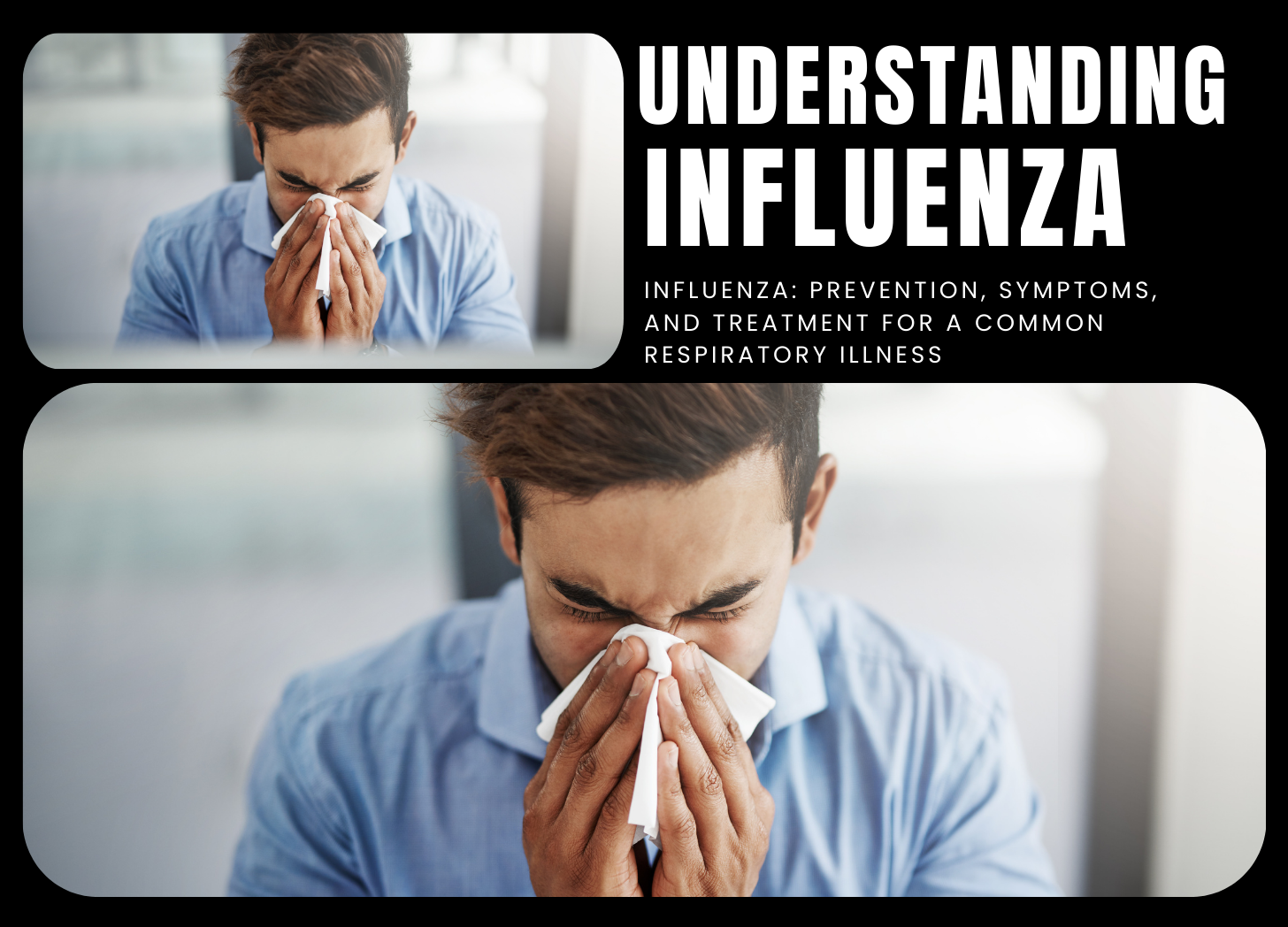Contact Us
Contact Us

Influenza, commonly referred to as “the flu,” is a highly contagious respiratory infection caused by influenza viruses. It impacts millions of individuals worldwide each year, leading to significant illness and, in some cases, death. The influenza viruses are classified into three types: A, B, and C, with types A and B being responsible for seasonal flu outbreaks. Influenza C viruses generally cause milder respiratory symptoms.
The severity of influenza symptoms can vary, including:
These symptoms usually manifest suddenly and can last from a few days to a week, often leading to missed school or work days and decreased productivity.
Preventing the spread of influenza is crucial for controlling outbreaks and reducing the burden of disease. The most effective way to protect against the flu is through vaccination, which is recommended for everyone aged six months and older, with few exceptions. The flu vaccine is updated annually to match the circulating strains of the virus, ensuring optimal protection against infection and complications.
In addition to vaccination, good hygiene practices can help prevent the spread of influenza viruses. These practices include:
Influenza treatment focuses on alleviating symptoms and reducing the severity of the illness. Healthcare providers may prescribe antiviral medications such as oseltamivir (Tamiflu), zanamivir (Relenza), and peramivir (Rapivab) to individuals at high risk of complications or those experiencing severe illness. These medications are most effective when taken within 48 hours of symptom onset.
Most healthy individuals can manage mild influenza episodes with rest, fluids, and over-the-counter medications to relieve symptoms such as fever and pain. It is important to avoid giving aspirin to children or teenagers with flu-like symptoms, as it can increase the risk of Reye’s syndrome, a rare but serious condition.
Influenza is a common respiratory illness caused by influenza viruses, with symptoms ranging from mild to severe. Key measures for preventing and controlling influenza infections include vaccination, maintaining good hygiene, and seeking prompt medical treatment when necessary. By taking proactive steps to prevent the flu, individuals can protect their health and help reduce the spread of the illness within their communities.
Post a Comment